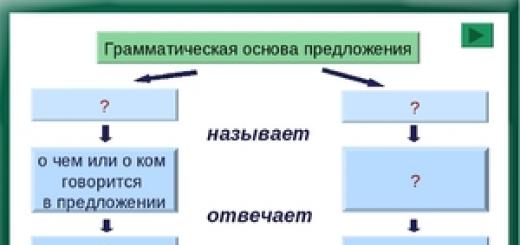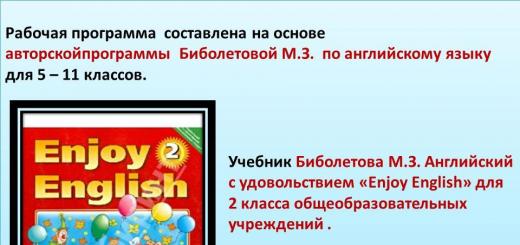The Extended Day Group are three words that most working parents no doubt care about. Why, for some children and parents, “extension” is really a solution to a lot of problems, while for others it is the biggest problem of the elementary school period?
Let's figure out how the GPA will work in 2019, and what format the "extension program" should have in the conditions of a modern school.
Do you need an "extension"?
When the first bell rings, multi-colored balloons will fly into the sky and first-graders will cross the threshold of the class with joy and awe, school days begin. Already on September 2, newly minted first-graders should sit down at their desks, while their parents are waiting for a standard working day. The working time of the parents is not adjusted taking into account the fact that the baby left such a kindergarten that is so convenient for everyone and works until 18-19 and goes to school, where 4 lessons are downloaded before 12 noon.
How to get out of the situation?
- involve grandparents in the upbringing of the baby;
- hire a nanny;
- place the child in an extended day group.

The third option is the best solution and not only for financial reasons. Being in the walls of the school after school, children get the opportunity to:
- get to know and make friends with classmates;
- take an active part in various activities at the class and school level;
- attend circles and sections;
- additional work with teachers;
- spend your free time usefully, exploring the world and playing exciting games.
How much will it cost for a child to stay in the GPA in 2019
Many parents remember that the GPA was once a free addition to the range of educational services provided by schools. Today the situation has changed somewhat and the stay of the child at school after the end of the lessons is an additional paid service, the cost of which is set directly by the educational institution.
As a free offer for parents, many schools provide a free GPA format with a 2-hour stay for the child at school. Of course, such an “extension” will not solve the problem of parents working until 5-6 and sometimes even 7 pm, which means that there is no alternative to paid services in 2019 either.
There is no and cannot be a single answer to the question of how much an after-school education costs or should cost at school in the 2018-2019 academic year, because many factors influence the formation of prices, including:
- the number of children in the group;
- menu and number of meals;
- richness and diversity of the program;
- qualifications of the educator (teacher) working with children;
- the level of the educational institution;
- the duration of the child's stay in the group.
The average cost of such services in the regions of Russia in the 2017-2018 academic year was:
Kursk region | |
Sverdlovsk region. | |
Voronezh region | |
Tambov region | |
Khabarovsk region | |
Moscow region | |
Khabarovsk region | |
Ivanovo region | |
Vladimir region | |
Volgograd region | |
Belgorod region |
Families entitled to certain social benefits (poor, large families, single mothers) have the right to apply to the management of the educational institution with a request to reduce the cost of the GPA. It is possible that in your school in the 2018-2019 academic year for this category of students, the extension will be provided completely free of charge. It happens that way too.

What a GPA Educator Should and Should Not Do
Since the service is paid, many parents would like, as they say, to get "to the maximum." But, here, too, there are a number of nuances. An extended day group can be led by the teacher himself, working in the class (as a rule, this option is chosen if almost the entire class goes to after-school), or by a guest teacher.
In the second case, it is important to understand that the “GPA teacher” and the “primary school teacher” are actually different professions. Although, often educators quite successfully cope with the role of tutors and actively help children deal with homework. But, it all depends on the person and the scope of duties prescribed in the contract or charter of the school.
The minimum that parents can count on is:
- ensuring the safety of every child;
- organization of children's leisure;
- walks in the fresh air in good weather;
- accompanying the baby to the office, in which the classes of the circle or section are held.
Otherwise, the requirements for the GPA educator are practically the same, because he will have to find a common language with the pupils, draw up an action plan and competently organize the work of the children.

In the most expensive GPAs, children do not just walk around the territory, play in the classroom, do their favorite hobby and visit various sections. The extension program may include:
- visits to the theater, cinema, zoo, museums and exhibitions;
- master classes in needlework;
- meetings with interesting people for children;
- organization of competitions and various holidays;
- additional classes with teachers;
- medical procedures (in schools with specially equipped rooms).
Homework and extension
Whether to teach lessons in after-school is a purely individual decision. If a child stays at school after school for only 2 hours, he will definitely do his homework already at home. If he is in the extension until 6-7 pm, then doing homework is an obvious necessity.
The effectiveness of training in this case will depend on the ability of the educator (teacher) to properly organize work on homework, his willingness to pay due attention to each kid and, of course, the characteristics of the child himself. Someone quickly and easily copes with tasks on their own, while someone needs an adult nearby who is always ready to help and suggest, as well as absolute silence and the absence of distractions, for successful learning.

Dangers of GPA
Do you think the biggest danger is getting into a bad afterschool group? But, imagine that for children and parents, the danger lies precisely in a good teacher who takes full responsibility for teaching a child in grades 1-4. What happens next? Already from the first days of the 5th grade, parents discover a huge amount of homework that the child had previously managed somehow without them. But, there is no familiar assistant teacher nearby, which often causes stress for both the child and the parents.

Which exit? Do not shift everything onto the shoulders of the teacher. Always find time for the child, even if it is the performance of some not the most difficult task. If you know for sure that you are not ready for such a test, find a good nanny in advance who is ready to take on some of the trouble, or a private “extension” for high school students.
Yes, such an opportunity is provided for by the terms of the maternity capital program (MCC), starting from September 2014. But this can only be done if the youngest child for whom the certificate was issued, already 3 years old. To begin with, we will give an answer to this question about paying for the maintenance of a child in an extended day care group (GPA) directly from the director of one of the Moscow schools:
Now about the payment of prolongation by maternity capital in more detail. In accordance with the changes introduced by the Government Decree of July 14, 2014 No. 648 in "Rules for the use of maternity capital for more educated children and the implementation of other expenses related to the child's education", the MSC certificate can be used not only directly for education, but also to pay for child care services in educational organizations - moreover (kindergartens), but also primary, basic and secondary general education(that is, in schools, gymnasiums, lyceums).
The introduction of these changes was associated with the entry into force in 2013 of a new law "On Education in the Russian Federation". Article 66 of this law, which regulates primary, basic and secondary general education in Russia, paragraph 7 provided for the possibility of creating conditions in schools "for the supervision and care of children in extended day groups".
For the provision of relevant services, the founder of an educational institution (usually these are municipal authorities) has the right to independently set the parent fee and its size. In this case, parents an agreement is drawn up on the provision of services on a paid basis for supervision and care in the extended day group (GPA), containing:
- a list of obligations of the school to look after and care for the child;
- calculation of the size of the parental fee for the provision of relevant services;
- requirements for the timing and frequency of payment in accordance with the payment schedule;
- details of the bank account to which the payment should be transferred.
In addition to the contract, no additional documents from the educational organization will be required to pay for the extension with maternity capital.
To use the funds of mother capital, the contract may indicate the corresponding clause that payment is made at the expense of the funds according to the certificate, taking into account the terms according to which the money is transferred from the FIU.
Maternity capital funds are transferred to the details of the school specified in the agreement by bank transfer.
- First payment is carried out within 10 working days from the date of the decision by the Pension Fund to satisfy the filed, which itself is considered no longer than 1 month.
- Subsequent payments are carried out in accordance with the terms specified in the contract for the provision of paid services for the care and care of the child in the GPA.
With the beginning of the 2015-2016 academic year, the capital has again started talking about paid afterschool at school. The memories of the times when you could stay after school for free, the teacher helped with homework and played, and after dinner they put you to sleep for an hour, like in a kindergarten, still warm the soul. Now you have to pay for every extra move. Up to the point that the child did the lessons. Not overcharged? Guarantee only supervision and care.
What actually happens?
The concept of supervision and care is deciphered in Art. 2, paragraph 34 of the Federal Law No. 273-FZ as "a set of measures for catering and household services for children, ensuring their personal hygiene and daily routine." That is, the teacher of the extended day group (GPA) walks with the children, accompanies them to circles and simply monitors safety in the classroom.
Schoolchildren occupy themselves, organize, even manage to come up with games within their own class. Someone was more fortunate - they put sofas at school where you can relax after a school day, someone less - they just spread a rug where children play with old toys brought from home, and even, oh, hateful, read. Some conscientious teachers are ready to do homework with first-graders and for free, but how long will they last? Teachers need to eat too.
How much does an extension cost at school?
The size of the parent board is set to 359.
The maximum amount of payment for the GPA is 4,000 rubles.
The minimum fee for the GPA is 300 rubles.
The average fee for the GPA is 2,350 rubles.

In addition to the fact that the parent enters into an agreement for the child to stay in the extended day group, all information about the paid extension of the school must be published on the official website of the educational institution. It is in this way that the school ensures the availability and openness of the document on establishing the amount of the parental fee for the GPA (clause 4.1, clause 2, article 29 of the Federal Law “On Education in the Russian Federation”).
An example of a contract for the provision of services for supervision and care in a school organization:




How is the fee formed?
According to paragraph 8 of Art. 66 of the Federal Law "On Education in the Russian Federation" for the care and maintenance of a child, the founder of an organization engaged in educational activities has the right to establish a fee charged from parents (legal representatives) (parental fee), and its amount, unless otherwise established by the Federal Law.
The process takes place in stages:
Step 1: Calculation of the fee for the afterschool group by the school.
Step 2: Placement by the school in the LC (personal account) of the ECIS (Unified Integrated System) of the amount of the fee for the GPA and a copy of the protocol of approval by the governing council.
Step 3: Registration and signing of a package of documents.
Step 4: Obtaining the approval of the founder by the school (read the Department of Education of Moscow) in EKIS.
Speaking in a philistine language, the Governing Council met and decided that for large families, low-income and single mothers, you can make the extension free of charge, and for everyone else - paid. The minutes of the meeting are drawn up, the decision is approved by the Department of Education, and the notorious paid supervision and care begins.
Some schools (and there are almost a few of them left) manage to keep after-school groups free or partially free: until 15:30, staying at the GPA is free, from 15:30 to 19:00 - for a fee, for example. These are schools included in the top ratings of the capital, which, due to their prestigious position in the top 20, etc. receive grant funding and can afford to spend some of that money on paying a GPA teacher.
If you suddenly decide to contact the Department of Education with a question about the legality of the payment for the extension, you will receive the following answer:

Always want to eat
In addition to the cost of the extension, you must also pay for lunch. You can give lunches with you, but such cases are extremely rare. Lunch costs about 100 rubles (somewhere a few rubles more).
Here, large families are more fortunate - they are guaranteed a free lunch at the federal level. In accordance with the Decree of the President of the Russian Federation of May 05, 1992 No. 431 “On measures of social support for large families”, large families have the right to provide their children with free meals (breakfasts and lunches), a set of school uniforms, and so on.
Other categories that can count on a free lunch are also selected by the Governing Board of the school. In most educational institutions, low-income people were classified as preferential. To confirm the status of a low-income family, you need to bring a certificate from the multifunctional center - it is issued when you provide a parent's passport and a child's birth certificate if you already receive monthly benefits.
Here's what the parents say:
Maria Ivanova:- At our school, a parent can choose: either pay 25 rubles per hour and in a group of about 40 people, or pay clearly 2,200 rubles per month and in a group of up to 30 people. The extension is open until 18:15.
Natalia Kuznetsova:- 2080 rubles with kopecks - extension until 18:15, 1390 rubles - extension until 16:15.
Valeria Shevtsova: We have a paid extension. 3800 rubles until 18:00.
Elena Ivanchenko:- We have in the first classes for free until 15.30, then for a fee until 19.00 - 2000 rubles a month. Large and single 50% discount.
Zhanna Litvinova:- In Krylatskoe at school for free.
Anastasia Strelnova:- It all depends on the school. We have so far been able to leave a free extension. What will happen next, we do not know.
Natalya Egorova:- Until 15:00, the extension costs 1,500 rubles, until 18:00 - 3,000 rubles.
Irina Mishina: - Starting from this year, the gas in the gymnasium has a paid -32 rubles per hour, lunch - 100 rubles.
Evgenia Shulga:- It's free at our school.
Irina Mikhailova:- Extension for 3 hours a day - 2000 rubles, for hours a day - 4000 rubles. Plus lunches come out 2000 rubles a month.
Svetlana Pozdnyakova:- We are in a regular school in the suburbs. The extension is free, an afternoon snack costs 45 rubles. First-graders even sleep on an after-school.
Ksenia Afonina:- We can choose: either a paid extension or a free one. Only they don’t do free lessons, they don’t attend circles. And paid - 4000 rubles.
Marina Vertova: We have paid and free. You can't pick up the free one earlier.
Maria Sad:- An extension until 19:00 costs 1144 rubles. Plus lunches - 108 rubles a day. The teacher, although he is not obliged to do the lessons, but promised. If two children from a family attend aftercare, they pay only for one.
The article was prepared by Maria Danilenko.
UPD: the amount of benefits and payments has increased since January 1, 2018. See the exact information in the benefits section of the site.
With the birth of a third child, in addition to the appearance of another family member, its status changes - the family becomes large. As it turned out, this status gives certain bonuses. Now paperwork takes very little time, and it's quite easy. So, as soon as you receive a birth certificate for a third child, you can issue the main document of a large family - a certificate of a large family. This can be done at the MFC, for which you will need birth certificates of children and parents' passports, two photos of parents, as well as details of the account to which money for compensation will be transferred. The certificate is ready the next day after the submission of documents. In the same place at the MFC, you can draw up paperwork for the following benefits:
For reimbursement of expenses for an apartment - 522 rubles per month.
Compensation for the increase in the cost of food for a child under three years old - 675 rubles per month.
Compensation for the increase in the cost of living for each child under 18 years of age - 600 rubles per month.
Compensation for using a landline phone - 230 rubles per month.
If there are schoolchildren in the family, then annually they are entitled to 5,000 rubles for the purchase of a school uniform.
In addition, you no longer need to pay for kindergarten. And when you come to enroll your third child in the kindergarten, you will be put in a priority queue, which practically guarantees a place in two years. Lunches at school for children of school age will also be free.
One of the parents and children from 7 years old can apply for a social card at the same MFC, according to which it is possible to receive discounts in stores and ride public transport for free.
In many schools for children from large families, free extensions are introduced at the discretion of the administration.
At the children's polyclinic, children under 7 years of age will be given prescriptions for 18 liters of milk per month, and children under 6 years of age will receive free medicines if prescribed by a doctor.
In many museums on certain days, admission for large families is free or at a significant discount. For example, large families have free admission to the Vasnetsov House Museum on Prospekt Mira on Saturdays, and the entrance to the Museum of the Armed Forces costs 100 rubles. The entrance to the zoo is always free.
If you have a car, parking for you in Moscow will be free. But the permit must be renewed every year. Transport tax for one car can not be paid.
Two years ago, the item "overhaul" appeared in the receipt for paying for the apartment. In the same place, at the MFC, you can get a 50% discount on its payment.
If the average total income of your family divided by each member is below the minimum subsistence level (16,426 rubles), then your family is considered low-income and you can apply for additional benefits by confirming this status.
In October 2014, for the first time, parents of young schoolchildren had to deal with a paid extension. There is no single figure that is paid in Russian schools for an after-school program - the amounts are 600 to 17,000 rubles, depending on the locality. In the provinces, you need to make a smaller payment for the service, in the regional centers - a larger one.
To this day, as soon as the new academic year begins, disputes flare up with renewed vigor between State Duma deputies over whether the extension should be paid or free. Again and again, amendments to the federal law are being prepared and developed, until they not only have no real effect, but have not even come close to signing.
Why is the extension paid?
In 2019, there were no significant changes in relation to the extension - there is nothing to please parents, they are still required to pay a fee for additional education and childcare. This is discussed in the Law on Education. According to this bill, each school has the right to independently determine the withholding amount for the presence of a student in an educational institution when the lessons are already over.
Discounts are also possible for certain categories of families, for example, poor parents or a single mother can apply to the school principal with a written request to reduce the amount of payment or exclude it altogether, due to a difficult financial situation.
Unfortunately, not all directors are ready to make concessions, in most cases the management of educational institutions takes the position: if you are not ready to pay, do not use the extension. There are cases when parents contacted the editors of the media and told how the director from the lordly hand provided a discount, and then reminded of his benevolent gesture at all parent meetings, and even among other students he offended and humiliated the dignity of the baby.
Many teachers are perplexed why parents are so keen on additional pay and consider it unfair, because any quality work should be paid, especially if modern methods are used in an educational institution.
The school curriculum is constantly being adjusted and expanded, for example, in 2019, each school, being in the outback or a metropolis, offers students the opportunity to study not only in basic subjects. It can be:
- hobbies - beading, macrame, embroidery, aircraft modeling;
- exciting classroom hours;
- hikes and trips to broaden the horizons of schoolchildren;
- visiting cinemas and theaters, museums, exhibitions;
- other educational activities.
A student of elementary school can count on a free stay at school in 2018 only for 2 hours after the completion of classes according to the schedule.
The cost of an extension in the regions of Russia
According to parents, they are not at all opposed to the extension being paid, but its cost should be adequate to the wages of ordinary Russians. For example, the average cost of finding a student after the main classes in 2019 reaches 17,000 rubles, and this is in state educational institutions, one can only imagine what is happening in commercial institutions.
Here is a list of prices valid in different regions of Russia:
- in the Kursk region, the average fee for an extended stay was set at 8,000 rubles;
- in the Sverdlovsk region you will have to pay 7,200 rubles;
- the Voronezh region is not far behind - 7,000 rubles;
- in the Tambov region, an extension is estimated at 4,200 rubles;
- in the Moscow region, a paid extension service costs 3,000 rubles. The same monetary indicator is in the Tyumen and Khabarovsk regions.
- 2,650 rubles will empty the wallet of parents of elementary school students in the Ivanovo region;
- 2,500 rubles are asked to be paid for the additional stay of the child at school in the Vladimir and Vologda regions;
- The Belgorod region has set a fee for an extension program at the level of 2,000 rubles.
Now about where the extension is still free. Basically, these are the outbacks, where parents of small children simply do not have the means to afford to pay for extra time at school. In such educational institutions, teachers are happy with any children's voice, because these cities and towns are considered economically unattractive, and the population is constantly decreasing, Russians are leaving their homes in search of a better life.
So, a free extension is found in some cities:
- Arkhangelsk region;
- Ryazan;
- Kaluga;
- Irkutsk;
- Mordovia;
- Tatarstan.
What does extension look like in real life?
A paid service requires money from parents, but what parameters should it meet? According to the law, the teacher of the extended day group organizes leisure activities with children, namely:
- walks;
- looks after their safety;
- leads to classes and circles.
This is where all the duties of a teacher end.
Of course, much depends on the leadership of the school and the interest of the teacher himself. There are teachers from God who are interested in spending time with children and engaging in their development, investing not only time, but also their souls in the educational and upbringing process. Such teachers can be counted on the fingers, but still.
The administration of the educational institution, in turn, should make sure that the kids are comfortable, for example, install soft sofas in the classroom or purchase special educational toys, children's rugs. In order not to waste time, the teacher can unobtrusively turn the after-school into an exciting game action that turns into homework for the next school day.
How is a paid extension at school
In order to exclude illegal fees from the school administration, a paid extension implies the execution of an appropriate agreement in writing. The director does not have the right to simply indicate the amount of the payment at the parent meeting; if there is an official website of the institution, which is very fashionable in our time, the information must be published. Openness and access to information is an important component of the work of every Russian school.
Before signing the contract, the father and mother should thoroughly study all its points. If you have any questions - do not hesitate to ask them, this is the right of the payer, which no one can take away from you.
How is the fee for the extended day group formed?
The procedure for determining and fixing the payment for an extension consists of the following steps:
- The administration, together with competent teachers, calculates how much a paid after-school at school will cost in 2019.
- The final decision is made by the steering committee, which considers the payment provided in the context of the average salary of one parent, established in the region of Russia.
- A photocopy of the decision made is posted by the educational institution on the official website.
- An agreed package of documents is signed.
- The school receives permission from the ECIS.
To reduce the worries of parents, some institutions offer a preferential extension: until 15:30 the child is under the supervision of a teacher for free, and after that the paid system comes into force. Such discounts can be afforded by prestigious schools that fight for each student, for which it is important to receive grant funding from the state, due to which, among other things, the missing part of the teacher's salary is repaid.
Additional expenses
Being at school for a long time, the kid will want to eat, so parents pay for lunch, unless, of course, they put sandwiches in the briefcase in the morning. Lunch costs about 100 rubles.
Only large families can save on food costs, the option of free lunches is also possible for other categories of schoolchildren, but the Governing Council of the school is authorized to deal with this issue. If the institution can afford to provide meals to individual students, the principal signs the directive to that effect.
By the way, if you notice unreasonable requisitions, when the prolongation is abused for enrichment, experts advise you to contact the appropriate regulatory authorities:
- The hotline of the Ministry of Education of Russia operates around the clock (www.net– [email protected]);
- residents of the capital can leave a complaint or claim on the portals gorod.mos.ru, ag.mos.ru;
- if you want to go further, visit the official website of the Department of Education (ask.educom.ru).
Will the extension be free?
In the future, officials are not going to abolish paid after-school in schools, the only thing the legislators are proposing is to expand the list of categories that can count on free stay in institutions after completing the main educational process.










